By Joe Kurmaskie (Excerpt from A Guide To Falling Down In Public) —
“Somewhere in Africa the elephants have a secret grave where they go to lie down, unburden their wrinkled gray bodies, and soar away, light spirits at the end.” —Robert McCammon, Boy’s Life
The elephants seemed more bemused than riled up by our presence on their trails. the giraffes simply turned their necks in slow motion to take a second look. the warthogs, though, they scared like quail flushed from hiding, and every time three or four darted among the bikes in our pack, the guide reminded us that if one rider went down, the rest of us had to push on—bush rules.
Logical. Maybe necessary. But still a little more harsh than one might have reasonably expected of a charity ride.
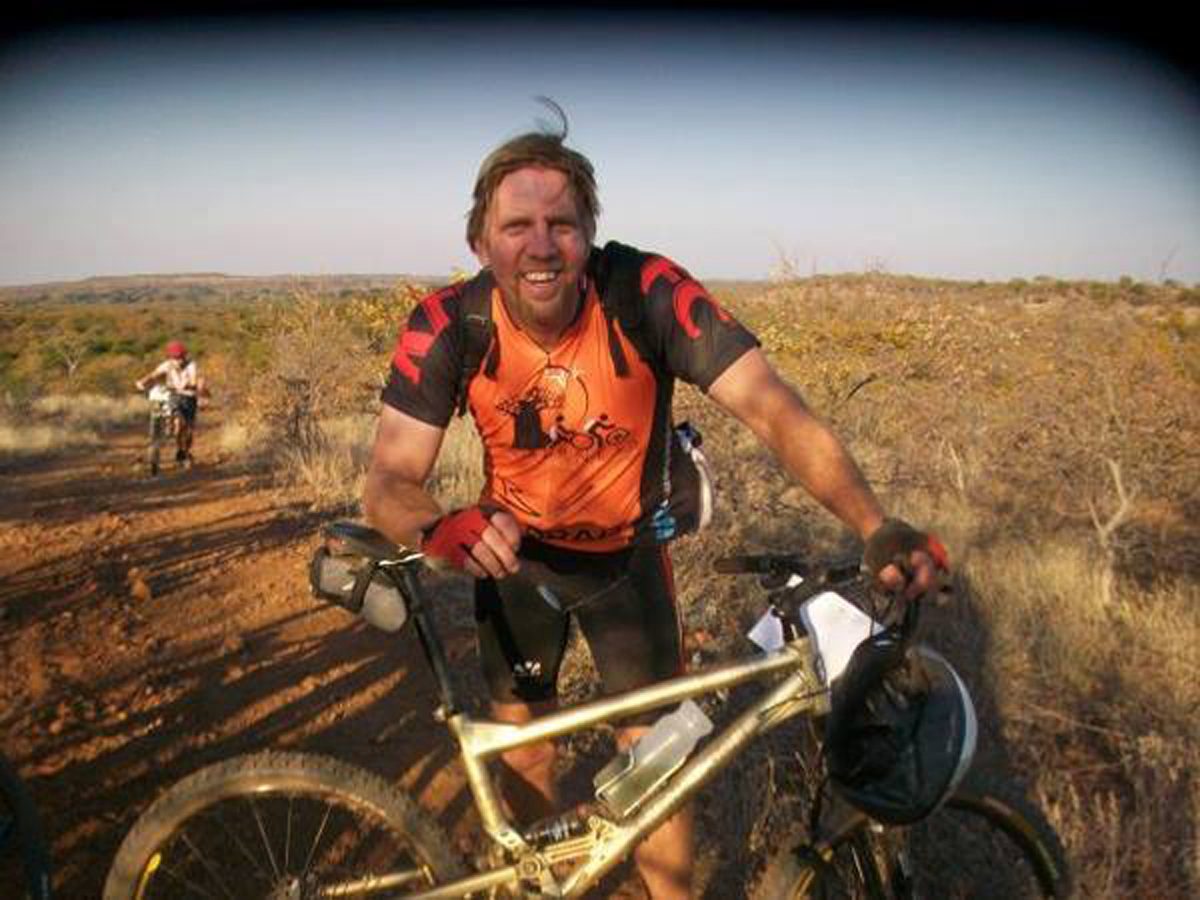
It was a little past first light on the first day of the Tour de Tuli Mapungubwe route, a weeklong affair through South Africa, Botswana, and Zimbabwe that raises money to send the region’s children to environmental education programs.
For 12,900 rand (about $1,840), riders get a private tent, all meals plus morning and afternoon snacks (during breaks that, hewing to the remnant traditions of British colonization, were called “tea”), logistical and mechanical support, and expert—if sometimes Darwinian—guides.
More than three hundred of us were there in 2009, split into groups of twenty or so. the most aggressive packs, like mine, had to cover up to 120 kilometers of trail a day on everything from singletrack to long stretches of deep sand to somewhat dry riverbeds. More casual riders could take slightly “easier,” shorter routes (about eighty kilometers on average).
The night before, as part of our send-off, Botswana’s minister of tourism had told us all a fable involving a rat, a snake, a cow, and an old farming couple. the story was an allegory meant to remind us of the connectedness of everything—cyclists, wild game, even Robert Mugabe, the erratic Zimbabwean dictator whose country our trip would enter and exit several times.
Officially, we had permission to cross the border. In reality, official decrees don’t carry much weight here—and the worst that might happen was beyond anyone’s guess.
Bush rules.
Anyway, I was just hoping for enough connectivity to keep me attached to my group. the crew of stiff-lipped hammerheads I’d been assigned to was led by a man captaining a full-suspension tandem mountain bike in a way that let you know he was muscling over the sand not despite his stoker wife but because with her on the back he could enjoy some extra burden.
His fixed gaze was a blink or two shy of madness, and he drove us onward until we overtook all but the pack made of retired racers from Europe and South Africa’s national cricket champion, who smiled easy but rode harder than anything else moving through the thick sand.
We managed to lose sight of him and the pros on a descent. we accomplished this by keeping our heads down and our cranks blurring all the way past the course marker—a pile of weathered rocks with a faint chalk arrow drawn below it.
“Take a few ticks off the clock, then we’re back at it,” our leader said by way of announcing a break once we were back on course. It was not yet 8 a.m. I’d choked down half a biscuit and just successfully pleaded with my heart to drop to a rate of 120 beats per minute when the others started saddling up.
“This stretch,” barked our leader, “let’s really give it a go, lads.”
And with that, I drifted off the back until I found myself amid the cyclists who had dubbed themselves the Game viewing group. I wasn’t sure what I’d come on this trip for—from the moment I’d heard about the tour, it had become one of those irresistible but ultimately inexplicable impulses cyclists are prone to—but I did know that I had not traveled eight time zones, to the cradle of civilization, to the very heart of the world, to ride time trials in sand, endure verbal abuse, and engage in a concentrated study of the rear wheel of a bicycle.
The Game viewers absorbed me into their herd like I was a lost family member.
“We asked that everyone start leisurely, then peter out from there,” explained my new guides, Sarah and Casper. this was a bit of hyperbole—given the demands of the mileage and terrain, there were no hapless cyclists on our trip—but the tone was spot-on.
The married couple (on separate bikes) had spent their whole lives in this territory. they cracked jokes and gave us nicknames as they pointed out hidden petroglyphs, ant mounds the size of Buicks, the ten-degree-cooler shade of shepherd trees, and the yellow, powdery bark of fever trees, to which the Dutch mistakenly attributed malaria.
In photos I’d seen of previous tours, bandanna-masked guides, wearing carbines slung across their shoulders like messenger bags, emerged Mad Max–style through the kicked-up dust of the elephant trails.
I asked Sarah where her guns were.
“I think a guide shot himself in the foot a few years ago,” she said. “So now we use elephant bangers, a can that sounds like gunshot when you pop it. Besides, the animals have thousands of miles of open country to get away. Guns are false security.”
She thought a little more, then added, “And they would only piss off Mugabe.”
Later in the ride I would witness signs of Mugabe’s irrationality that justified Sarah’s caution. As we rode through the most remote stretches of the bush—“the back of beyond,” it’s called—we repeatedly came upon skin-and-bone soldiers propped against shepherd trees.
The dictator had peppered our route with a military presence that could barely stay upright. the soldiers offered tentative waves, and we would stop. Out of empathy or pity, not threat, we gave them food. they had us hold their rusty weapons so they could balance plates on their pointy knees while we coached them not to eat too fast. tears ran down one man’s face as he swallowed.
I had to look away.
One day we spotted a clean-running watering hole, and without cajoling, taking a vote, or fielding objections, our entire group stripped down and plunged into the cool water. As we lounged, peloton after peloton rocketed by. Some riders shook their heads at our antics.
Others were going too fast to notice us at all.
Bobbing around in the deep pool, washing off layer upon layer of dust—the standard-issue bandannas did little more than keep the grit out of our mouths—we resembled a load of Burning Man refugees dropped in the middle of the bushveld.
Dave Bristow, a travel writer from South Africa, floated near me and said, “we’re still ahead of about a hundred riders.”
His math seemed suspect. Based on the number of groups that had gone by, I was fairly sure we were dead last. I ran the groups again in my head. I swore they’d all rolled through.
“How you figure, Dave?” I asked.
He pointed at a cairn one of our bikes had partially covered up and said, “Because the last four groups went the wrong way.”
Something about his shit-eating grin brought the same kind of clarity to this trip that I’d seen in the pool’s water before we jumped in. I leaned back, relaxed, and took in an approaching herd of zebra—a herd of zebra for crying out loud! I realized that I’d come on this ride to find a way to own some of my life’s moments again.
As a husband, parent, and working stiff, I haven’t fully possessed one of my days, let alone a week, since the end of the 1990s. Some part of it all had always belonged to someone else. this trip had called to me because it would allow me to stay out on trails from first light until the shine of a fat moon guided me, dirty, spent, overwhelmed, and blissful, into camp.
It also took place in a daunting, remarkable landscape that was
burning itself into my see-it-all brain. I was going to ride head-up when I wanted and flat-out if I had that urge. I was going to get on my bike the way I used to, with abandon, and, once on it, I was going to find and hold on to whatever passes as joy in a grown man.
But first I had to put my shorts back on and help clear the kudu antelope away from our bicycles.
the stop at Sentinel ranch was the first time I’d touched pristine, locked-in-place dino bones. Pure childhood heartbreak had arrived the long-ago day I’d learned that the two-story skeletons in museums—the beasts I grew up fearing and fantasizing into Land of the Lost scenarios—were actually plaster of paris.
We’d ridden long and hard to get here, pedaling out of lush riparian woodlands on the north bank of the Limpopo river, through blistering scrub savanna, up the water-carved creases of sandstone hills. Standing over this actual, fully intact dinosaur skeleton was like having a piece of my childhood returned to me on that windswept, red-rock vista. I found myself breathless in a way that would have been embarrassing had I not been able to blame it on the climb.
“My mother found this dinosaur,” Sarah told us. Her family had owned this land, formerly the family ranch, before Mugabe redrew all property and boundary lines. “It means a lot to us that we can show you guys these fossils.”
Some of it surely was exhaustion, but our group was subdued near to reverence. I posed for a photo I later titled “Bikes and Bones.” In it, I’m filthy and wired and despite showing the first signs of bone-deep fatigue around the edges, I’m shockingly alive. No one had seen that guy in years, including me.
By the time we passed the big herd of sixty to seventy elephants, they had put up with hundreds of cyclists pedaling by their feeding grounds—enough apparently, to turn their customary bemusement into annoyance. Suddenly, the warthogs weren’t the most dangerous beasts on the trail. As our group rolled by, a twelve-thousand-pounder began waving its ears repeatedly and throwing sand in all directions. I was one of the final riders trying to slip past.
It charged.
Elephants can go from zero to twenty-five miles an hour in short order. A documentary team filming our ride caught the elephant’s shocking first burst of speed on video, and its deafening roar, and its pause as it seemed to sink down on itself, stockpiling kinetic dynamite for what I felt certain would be a closing stomp of death.
(Bicyclist versus elephant video link: www.youtube.com/watch?v=jnUwSSe69YI)
What the video fails to capture is my high pitched schoolgirl screams of terror.
the oft-cited phenomenon of everything slowing down during a life-threatening situation didn’t play out for me. I was a blur of thoughtless primal fear until I was well beyond the herd. then I was conscious only that I was breathing, though in ragged gasps.
Later, the locals would tell me the elephant’s behavior was a mock charge, that if the animal had really meant business it would have tucked in its trunk, so as not to damage the vital equipment, and would have led with its tusks. with not a little amusement, they reminded me that the hyenas that had trapped me inside a port-a-potty at camp the previous evening were actually a more formidable threat.
Driven to intestinal dementia that fateful evening by an adverse reaction to malaria tablets, I’d mistaken the hyena’s laughter for cruel-minded cyclists around camp making fun of my plight.
When I’d finally come out of the box for a breather, a circle of a dozen eyes glowing in the darkness sent me back into the stench, where I’d managed a fitful, seated sleep against the port-a-potty wall, a little scared but with my faith restored in my fellow man.
The charge might have been mock. My shrill scream was real. So was my joy at being alive.
Following the trails along the Limpopo river and its tributaries, we weaved repeatedly between Botswana and Zimbabwe, sometimes a couple of times a day. One stands out in my mind—one unlike any I’d experienced in all my years of bike travel on five continents. A card table had been jammed into loose sand on the bank of the river.
A matronly woman sat at the table, which held an ink pad and a basket of pomegranates. I approached, and she stamped my pass- port. I looked around. the trail ended here, then picked up on the other side of the Limpopo. the woman offered me neither a pomegranate nor any information or advice on the logistics of crossing the border. I shrugged, rolled my bike over to what I hoped would be a shallow section of the river, stuck my shoulder through the frame, and waded across.
Later, with the sun hanging just above high sandstone cliffs, we gathered around what Sarah described as one of the largest baobab trees in Zimbabwe.
She told us that while baobabs may look tough, they’re papery throughout—a weakness, but one that expands the tree’s place in the ecosystem, as its soft innards are easily carved out to provide homes for wildlife during and after its life cycle. I started to feel philosophical, but opted instead, as I often do, for the physical. I peeled a bit of paper off the tree, smelled the exposed wood, studied the patterns made from jutting branches that resembled Popeye’s bulging biceps and forearms.
At the guides’ suggestion, we all gathered, clasped hands, and formed a circle around the tree to gauge its circumference. there was a moment of silence.
Then Dave, the other travel writer, said what everyone was thinking. “If anyone breaks into a verse of ‘the Lion Sleeps tonight,’ we will be forced to lash you to the tree and leave you for the jackals.”
I didn’t know which thrilled me more—the good company and easy camaraderie of these cyclists, or the idea that there are still places in this world where being eaten by jackals is a going concern.
We were less than fifteen kilometers from the day’s host village, a collection of shanties along a dry riverbed where our food and tents awaited. Most of that distance was a short series of rollers backlit by the sunset playing off red rocks.
We raced one another to the river, in light that made deciding what was shadow and what was boulder a fast-moving art form, little acts of faith and bits of skill woven together, the threads that form the tapestry of every good bike ride.
Somehow we made it down in one piece. Pushing our bikes across wet sand in the half-light of dusk, we had just enough in our legs to limp into camp. that was when we heard voices. Distant at first, then gathering and growing louder—joined in song. then we saw them. The entire village had gathered along the parade route for the finishers, and had remained to cheer us, the last riders, in.
The villagers crowded the dusty path, children waving sticks, women in full dress chanting and singing and fanning themselves, men sporting old Izod shirts and nodding and humming soothing bass lines for each song. Chickens darted by, chased by toddlers. Clusters of teenage boys packed on donkey carts stared at each bike and each rider.
Our group pulled over to hand out hard candy, coins, and water bottles. Brown-bag luminarias had been lit and placed along the path to guide us the final yards. the words of the lyrical Zimbabwe dialect formed a kind of music I’d never heard before. It swelled and surrounded us. It cradled the broken parts of me.
They were singing, singing, and we were listening.
Joe Kurmaskie is a journalist, syndicated columnist, and contributor to numerous magazines including Outside, Bicycling Magazine, Men’s Journal and Parenting. He’s a bike advocate, activist, found of Cadence Press, and a Random House author of seven books including Metal Cowboy, Mud, Sweat and Gears and A Guide To Falling Down In Public.

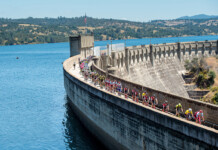
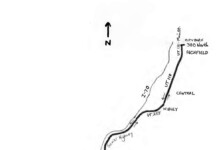


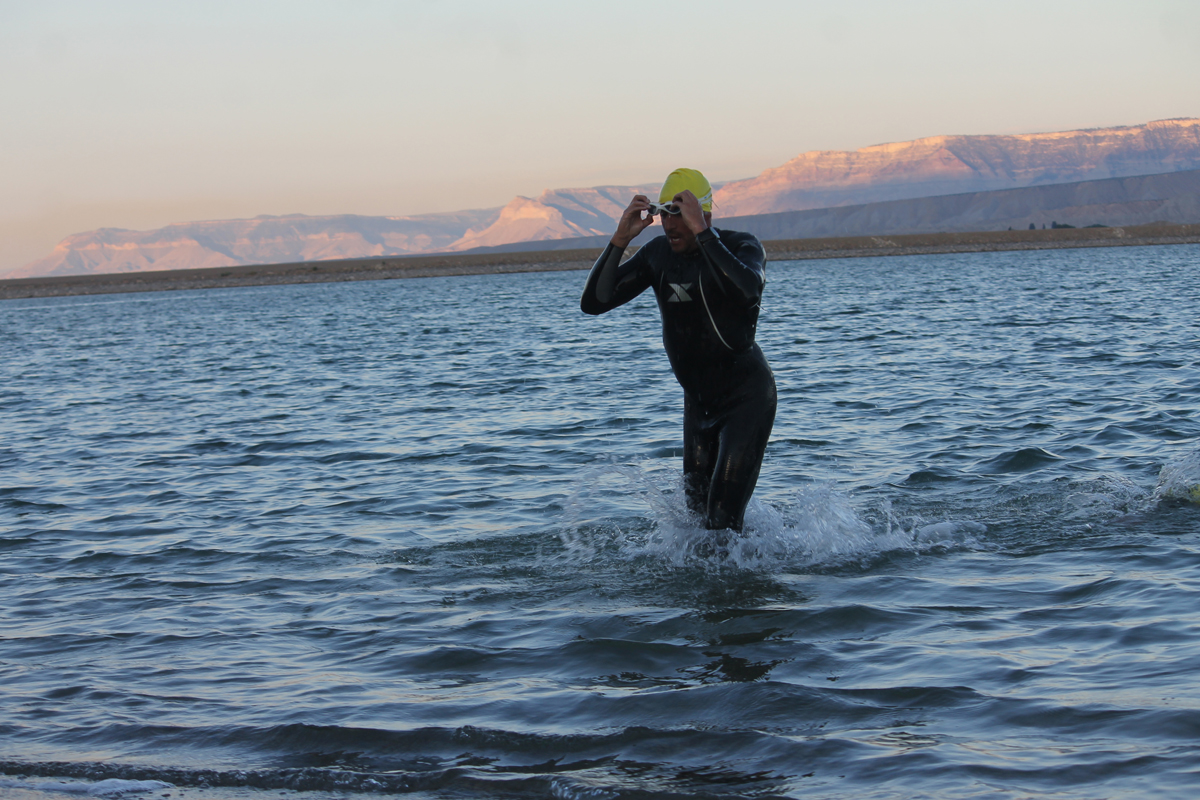

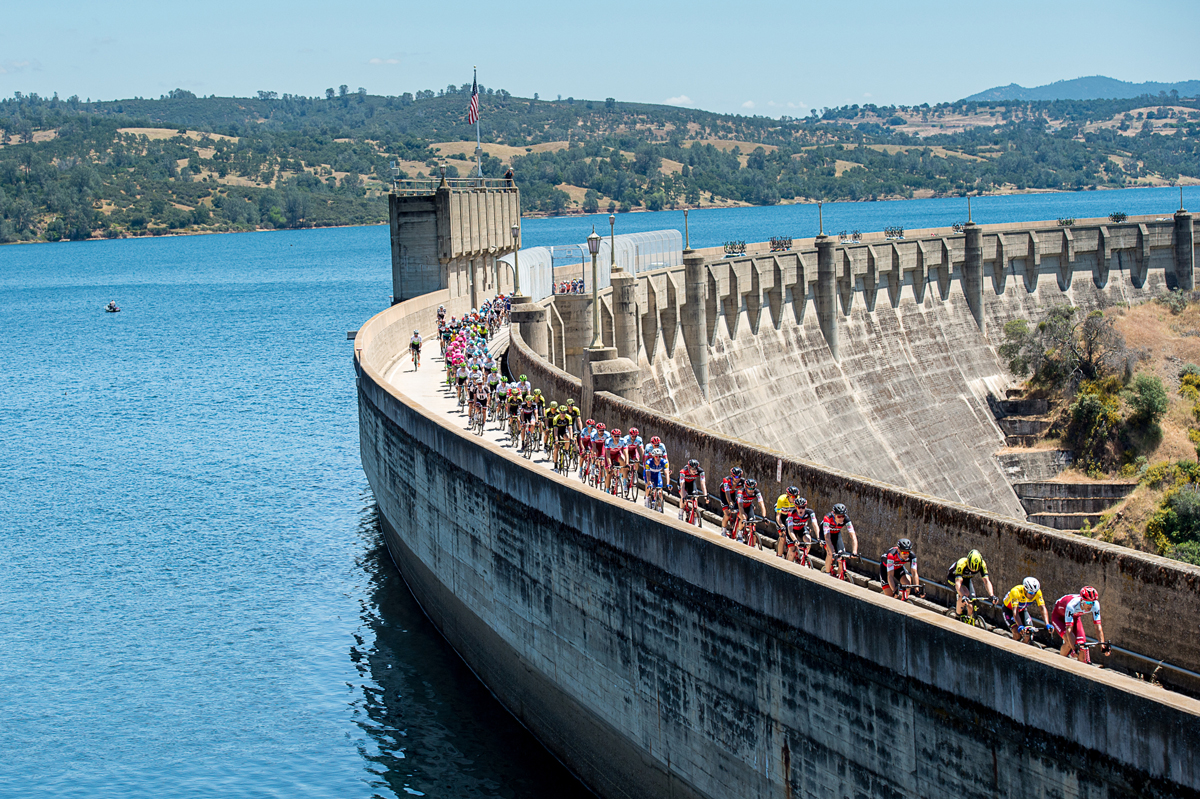

Outstanding story and writing. I only wish the video link worked so I could hear those schoolgirl screams.
Comments are closed.